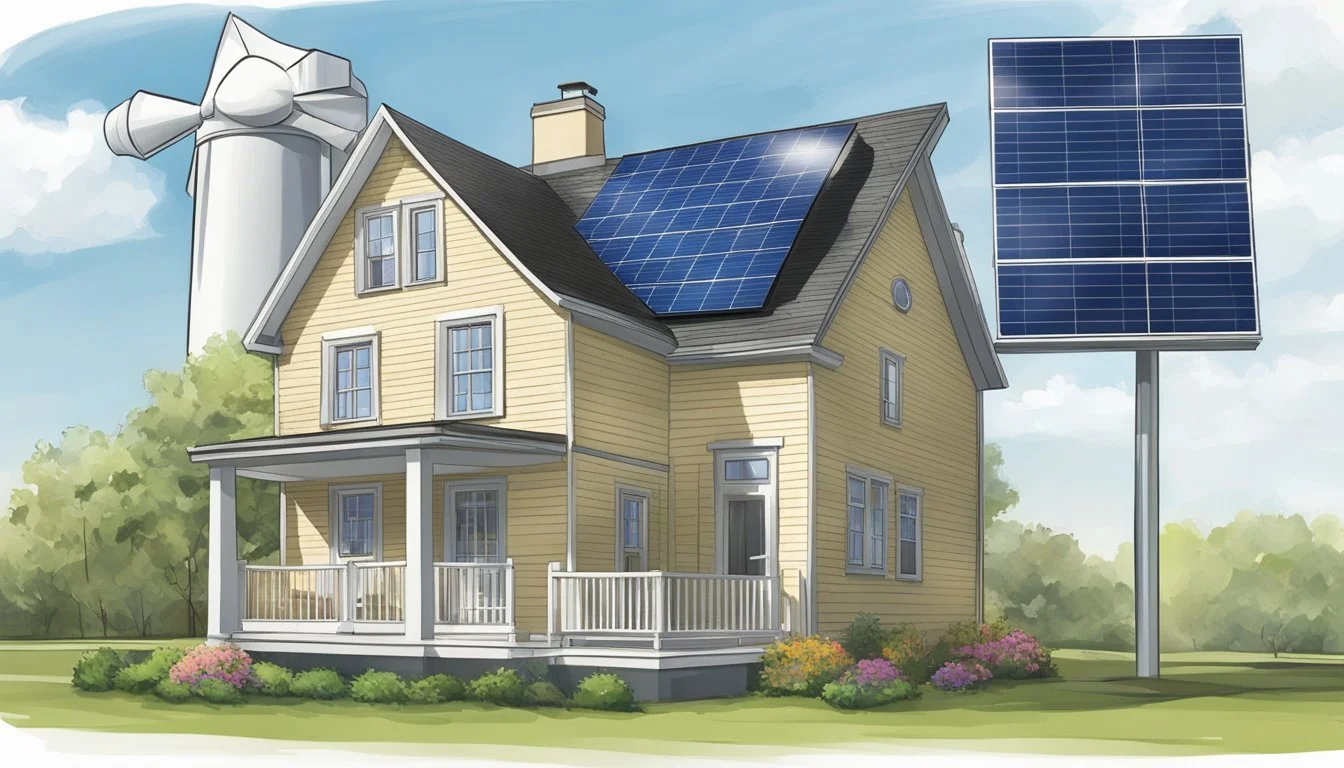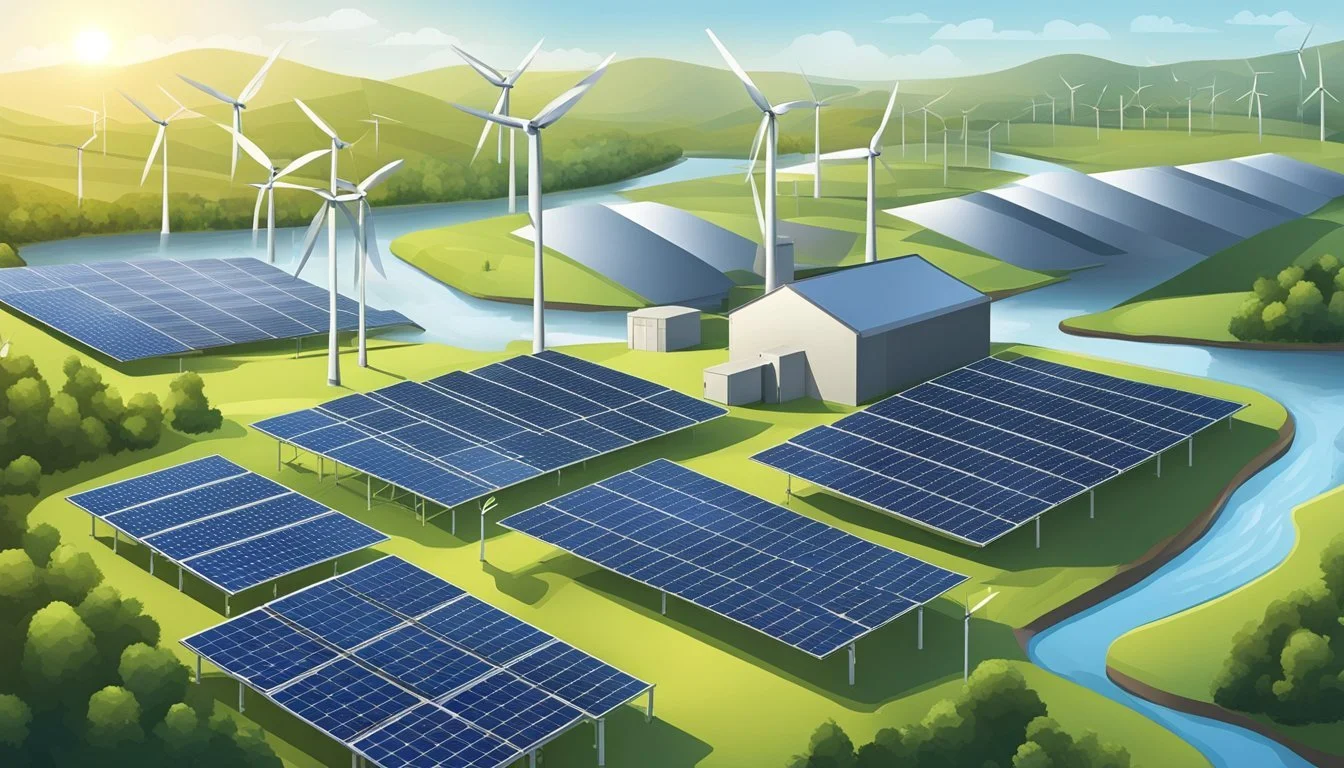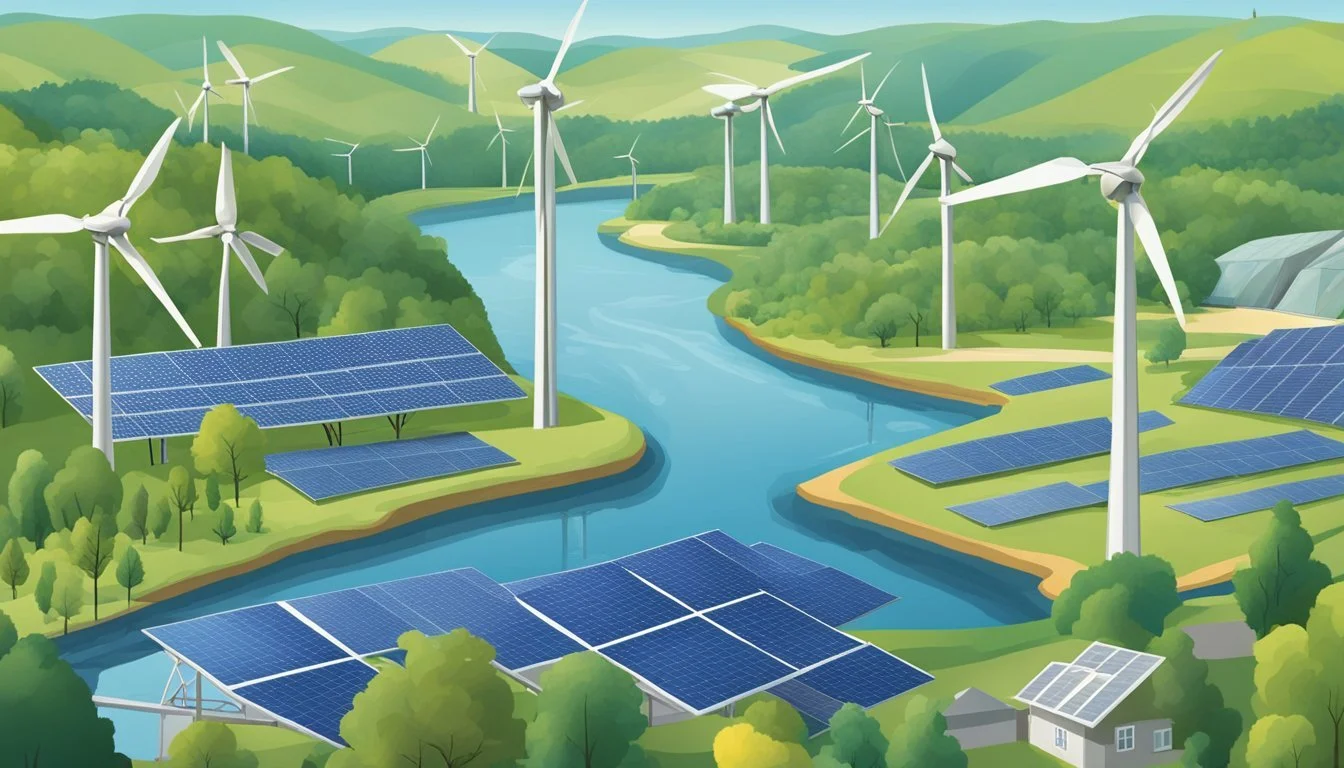Incentives for Renewable Energy and Conservation in Mississippi
Policies and Benefits
Mississippi is paving the way for a greener future by implementing numerous incentives designed to encourage the adoption of renewable energy and conservation practices. With a focus on sustainability, the state has recognized the importance of reducing dependence on non-renewable energy sources and promoting environmental stewardship. These initiatives include financial rebates and support for households and small businesses that invest in renewable technologies like solar panels.
The shift toward clean energy is supported by various programs that not only acknowledge individual efforts but also contribute to a larger strategy aimed at bolstering environmental quality and energy independence. Critical investments through entities like the Department of Energy are expanding the possibilities for energy efficiency, smart grid technology, and advanced biofuels within the state. Mississippi is also home to national initiatives such as the On-Farm Energy Initiative and the Mississippi River Basin Initiative, which collectively work toward improving water quality and promoting wildlife conservation.
Incentive programs, like the recent approval of a new renewable energy incentive program in spite of challenges, exhibit the state’s commitment to a sustainable and economically viable future. Mississippi's proactive stance reinforces the state's potential to lead in conservation efforts and the sustainable energy movement, setting precedents for other states to follow.
Renewable Energy Incentives in Mississippi
Mississippi is enhancing its renewable energy profile through various incentives and rebates, which are designed to encourage the adoption of renewable energy technologies and stimulate market growth.
Mississippi's Renewable Energy Landscape
Over recent years, Mississippi has seen a significant shift towards renewable energy, with state agencies and public utilities recognizing the potential economic and environmental benefits. The Public Service Commission (PSC) has played a crucial role in spearheading regulations and policies that support renewable energy projects. An example is the commitment by Entergy Mississippi, the state's largest utility, to source nearly a third of its power from renewables by 2027. This move indicates a broader trend in the state's energy sector, driven partly by the more cost-effective nature of renewable energy production, especially solar.
Incentives and Rebate Programs
The PSC has implemented an incentive program that offers financial benefits to ratepayers who invest in renewable energy systems. For instance, homeowners and small businesses can receive a rebate for purchasing systems like rooftop solar panels. This rebate is particularly beneficial for households earning up to 250% of the federal poverty level, as they qualify for even higher payment levels.
Mississippi Power and other utility companies offer additional rebates for energy efficiency improvements, such as the installation of Level 2 EV charging stations. These incentives are aimed not just at reducing energy consumption but also at lowering the overall energy bill for consumers.
The initiative by the Gulf States Renewable Energy Industries Association also demonstrates the private sector's active role in promoting energy-efficient technologies within the state. Their support highlights the commitment of solar professionals, indicating a conducive environment for solar manufacturers and complementary businesses.
Through these concerted efforts, including tax credits and grants, the Mississippi legislature, in collaboration with various stakeholders, is working to create a thriving market for renewable energy that benefits consumers, businesses, and the environment alike.
Solar Energy Specific Initiatives
In Mississippi, targeted incentives have been developed to advance solar energy projects, focusing on installations and financial mechanisms to support growth in this sector.
Solar Panel Installation and Utilization
Mississippi's solar panel initiatives emphasize both large-scale and smaller rooftop solar panel installations. For instance, the Mississippi Public Service Commission has been proactive in supporting solar projects across the state. Public schools have the opportunity to benefit financially from installing solar panels, as doing so can potentially lower energy costs and create new streams of revenue. Builders and solar manufacturers are encouraged to participate in the spreading of solar technology, creating a more competitive market in the state.
School districts installing solar panels can not only reduce energy bills but also serve as educational tools for students.
Collaborations between power companies and districts help guide the process, ensuring schools can navigate incentives and installations effectively.
Solar Energy Financing and Support
Financial support for solar energy in Mississippi includes incentives like a $3,000 rebate program to encourage the adoption of solar panels. Initiatives like these make installing solar panels more accessible, promoting sustainability and conservation efforts throughout the state.
The solar program, championed by the Mississippi Public Service Commission, aims to simplify the process for financiers and customers.
Specific financial tools and incentives are in place to support the development of solar, assisting builders and homeowners in funding solar projects.
This financial support from the state is a gesture towards a greener future and a nod to the state's commitment to renewable energy and a sustainable future.
Energy Conservation Efforts
Mississippi has actively pursued energy conservation through a variety of programs and educational efforts. These initiatives are designed to enhance energy efficiency, reduce energy consumption, and lower energy costs for public entities, including public school districts and agricultural producers.
Conservation Programs and Measures
Several statewide programs have been established to encourage energy conservation. The Mississippi Public Service Commission has been involved in setting rules for renewable energy incentives, which also influence conservation efforts by promoting the use of renewables over traditional natural gas—enhancing energy performance while potentially lowering costs. Public entities can enter into energy performance contracts where energy services companies guarantee energy savings, often through upgrades to energy systems like HVAC.
A particularly effective measure across the state includes the implementation of weatherization efforts to improve energy efficiency in homes and buildings. This not only conserves natural resources but also directly affects the health and welfare of the residents by ensuring cleaner air quality and reducing overall energy costs.
Energy Efficiency Education and Audits
Education plays a vital role in energy conservation efforts. Programs aimed at educating the public and private sectors about energy efficiency improvements can lead to substantial reductions in energy use. In Mississippi, entities can benefit from an energy audit—a comprehensive assessment that identifies ways to reduce energy bills and enhance efficiency.
To support public knowledge and adoption of efficiency measures, the state provides resources for energy efficiency education. This includes guidance on how to conduct energy audits which can result in significant energy savings for public entities such as schools and government buildings.
Furthermore, agricultural producers in Mississippi have access to resources detailing how to reduce energy consumption and incorporate renewable energy sources into their operations, leading to a more sustainable approach to managing their energy use and resources.
Public and Private Partnerships
Mississippi's journey towards renewable energy and conservation is bolstered through key public and private partnerships that facilitate collaboration between power companies and builders. These alliances aim to create competitive markets and stimulate investment in green energy projects.
Collaboration with Utilities
Utilities such as Mississippi Power and Entergy are pivotal partners in the state's renewable energy initiatives. They collaborate with public entities, including the Public Service Commission (PSC), to streamline policies that foster a greener power grid. The PSC plays an instrumental role in regulating the utility sector, encouraging Mississippi Power and similar entities to focus on renewable energy sources. These collaborations can result in greater energy efficiency and the development of energy projects that might not have been feasible otherwise.
Engagement with Builders and Financiers
In Mississippi's bid to advance its renewable energy landscape, active engagement with builders and financiers is critical. Builders have access to financial assistance and incentives that encourage the construction of energy-efficient homes and buildings. They often work in tandem with financing bodies to create payment options that benefit consumers and are fair in a competitive market. Financiers, on the other hand, assess the viability of projects to secure funding, ensuring that renewable ventures are both sustainable and profitable.
Support for Public Institutions
In Mississippi, public institutions benefit from targeted initiatives aimed at enhancing energy efficiency and the adoption of renewable energy solutions. These incentives are tailored to help schools and other public facilities manage resources effectively and foster long-term sustainability.
Schools and Energy Efficiency
School districts in Mississippi have the opportunity to capitalize on energy efficiency improvements through programs offering various rebates. These programs, often overseen by the Mississippi Public Service Commission, incentivize the installation of energy-efficient appliances and systems, including solar panels. For instance, the implementation of energy performance contracts allows schools to engage with qualified contractors to upgrade their energy usage, with the guaranteed savings typically covering the costs of these improvements.
Public Facilities and Resource Management
Public entities such as libraries, municipal buildings, and other government facilities can also engage in comprehensive energy upgrades. By entering into partnerships with energy services companies and securing financing through a willing lender, these entities can undertake significant energy efficiency improvements. This not only reduces the carbon footprint of public facilities but also translates into substantial cost savings over time. Programs often include assessments of energy usage and may result in the addition of energy-efficient lighting, heating, ventilation, and air conditioning systems.
Legislation and Public Policy
Mississippi's approach to fostering renewable energy and encouraging conservation hinges on legislative frameworks and policy initiatives that create incentives for sustainable practices.
Mississippi Legislation on Renewable Energy
The Mississippi legislature introduced Miss. Code Ann. Section 27-31-46 in 2021, highlighting their commitment to renewable energy development. This statute allows county boards of supervisors to provide a tax exemption of up to 50% of the assessed value of renewable energy projects, promoting the use of wind, water, biomass, and solar energy sources. By doing so, Mississippi aims to attract investment in renewable energy and offer financial relief to those embarking on sustainable projects.
State-level Energy Policy Development
Mississippi's Public Service Commission (PSC) plays a pivotal role in the formulation of state-level energy policy, actively supporting renewable energy endeavors. Recently, they have approved a new incentive program for renewable energy, an initiative run contrary to the objections of prominent figures and utility companies such as Entergy and Mississippi Power. The Tennessee Valley Authority also operates in the state, contributing to policy discussions and implementation at a regional level. These policies are not only focused on fostering a green economy but also on protecting the interests of ratepayers, ensuring access to cost-effective energy resources. Tax credits and rebates serve as additional tools within the policy framework, offering financial incentives to further promote renewable energy use and conservation in Mississippi.
Financial Mechanisms and Support
Mississippi offers a range of financial mechanisms to encourage the deployment of renewable energy and promote energy conservation. These initiatives are designed to provide direct economic benefits to a diverse array of beneficiaries, from agricultural producers to businesses and homeowners.
Incentive Programs and Financial Assistance
Mississippi’s incentive programs and financial assistance opportunities are crucial in reducing the upfront costs of renewable energy installations and energy efficiency upgrades. They offer a variety of options to make clean energy more accessible, including:
Renewable Energy Incentive Programs: These programs aim to lower the cost barrier for installing renewable energy systems. The eligibility requirements often necessitate applicants to work with certified contractors and may be available to both residential and commercial entities.
Low-Interest Loans for Energy Efficiency: Offered through certain lenders, these loans provide financial assistance to homeowners and businesses to implement energy-efficient technologies, with favorable terms to encourage uptake.
Grants and Tax Credits for Energy Projects
Grants and tax credits serve as powerful incentives for investment in renewable energy and conservation efforts:
Tax Credits for Renewable Energy: Substantial tax credits are available to those who install renewable energy systems, effectively reducing the tax liability for eligible parties. This financial support is instrumental in making projects more economically viable.
Grants for Agricultural Producers: Aimed at those in the agricultural sector, these grants can cover a portion of the costs for energy efficiency improvements or renewable energy installations, directly supporting farmers in their transition to cleaner energy sources.
Community and Economic Impact
The transition toward renewable energy in Mississippi represents a significant shift not only environmentally but also economically. It stands to affect the state's local economies and its stride towards long-term sustainability.
Effects on Local Economies
Renewable energy initiatives in Mississippi have led to the development of local business opportunities and job creation. For example, the implementation of solar facilities such as the one in Sumrall contributes to electricity generation and creates positions for local workers. This stimulates the state's local economies by providing new revenue streams and reducing the dependency on imported fuels. Agricultural producers in Mississippi may benefit too, as they can potentially gain additional income by leasing their land for renewable energy projects.
Renewable energy also has implications for Mississippi's public school districts. By adopting renewable technologies, schools might reduce their energy expenses, thus freeing up budget for educational resources or health programs.
Pursuing Long-term Sustainability
Long-term sustainability in Mississippi is intricately linked to the adoption of renewable energy sources. By harnessing its natural resources, Mississippi takes steps to secure a stable, clean, and economically viable energy future. Besides protecting the environment, this drives down long-term costs of electricity for consumers.
Groups such as the Sierra Club have advocated for expanded access to renewable energy, indicating the public interest in sustainable practices. Increased investment in renewables is likely to foster healthier communities, not only through reduced emissions but also by establishing Mississippi as a leader in the clean energy sector. The state's actions today are critical determinants in ensuring a sustainable economic environment for generations to come.
Innovation and Future Directions
Mississippi is paving the way for innovation within the renewable energy sector, leveraging emerging technologies and forming strategic partnerships to advance its sustainable energy goals.
Trends in Renewable Energy
In Mississippi, renewable energy trends are shifting towards utilizing biomass as a significant source of alternative fuels. This movement capitalizes on the state's forestry resources to produce energy, thereby creating a renewable energy system that contributes to both waste reduction and energy production. The Gulf States Renewable Energy Industries Association plays a fundamental role in promoting these trends, advocating for policies that support industry growth and sustainability.
Emerging Technologies and Partnerships
Recent developments have spotlighted the rise of solar manufacturers in Mississippi, driven by the availability and improvement of solar technologies. Through the Mississippi Solar Program, businesses and homeowners are encouraged to adopt solar systems via incentives, aiming to increase the state's clean energy footprint. Additionally, partnerships between educational institutions and green businesses are fostering a robust environment for innovation in alternative fuels, pushing the boundaries of what’s possible in energy conservation and production.










